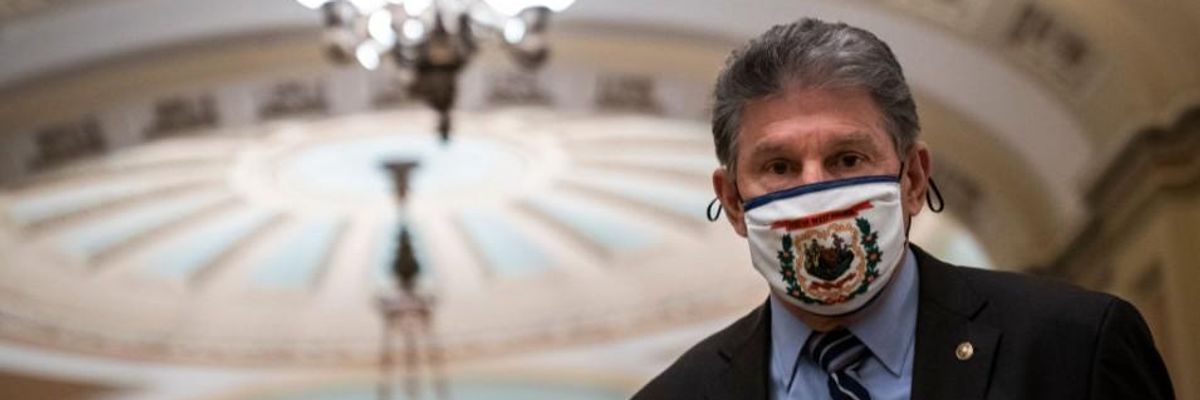America is at a turning point on voting rights--one that's almost as critical as the mid-1960s when the Civil Rights and Voting Rights Acts were passed.
The present choice is whether to expand voting rights and strengthen our democracy, or allow the GOP to enact even more restrictive voting laws and partisan gerrymandering--cementing themselves in minority rule for years to come.
Just as in the mid-1960s, presidential leadership will be a decisive factor.
Across the country, state Republicans have introduced over 250 bills restricting the right to vote. As a lawyer for the Arizona GOP recently admitted before the Supreme Court in seeking to defend the state's voting restrictions, if they're eliminated, "it puts us at a competitive disadvantage relative to Democrats."
Democrats in Congress are fighting back against this anti-democratic agenda with their For the People Act and the John Lewis Voting Rights Advancement Act.
These bills would automatically register new voters, outlaw gerrymandering, expand early voting, ban restrictions on mail-in ballots, reform campaign finance laws, and restore the 1965 Voting Rights Act.
Mitch McConnell calls it a "power grab." It is a power grab--grabbing power back for the people.
Yet although Democrats now possess a razor-thin majority in the Senate, these efforts don't stand a chance unless Democrats overcome two obstacles there.
The first is the filibuster, a rule requiring 60 votes to pass regular legislation. The filibuster is not in the Constitution and not even in law. It's just a Senate rule, which Democrats can and must end with their 51-vote bare majority.
The filibuster has historically been used against civil rights and voting rights. So it's appropriate that Democrats finally end it in order to protect and expand these rights in the face of state efforts to restrict them.
Which raises the second obstacle. Two Democratic senators--West Virginia's Joe Manchin and Arizona's Kyrsten Sinema--have said they won't vote to end the filibuster, presumably because they want to preserve their centrist image and appeal to Republican voters in their states.
Well, I'm sorry. The stakes are too high. We are talking about the future of civil and voting rights--critical to fighting racism and preserving American democracy. There is no excuse for two Democratic senators to allow Republicans to stomp on our democracy and entrench their minority rule for generations.
And there is no reason President Joe Biden should let them. It's time for him to assert the leadership that President Lyndon Baines Johnson asserted more than a half-century ago.
When someone tried to persuade LBJ not to waste his time on civil and voting rights, he replied, "Well, what the hell's the presidency for?" Johnson worked to break the southern filibuster--lobbying recalcitrant senators and pressuring their colleagues to do the same. As Senator Hubert Humphrey later described it, "the president grabbed me by my shoulder and damn near broke my arm."
Historians tell us that Johnson's efforts may have shifted the votes of close to a dozen senators, breaking the longest filibuster in Senate history and clearing the way for passage of the Civil Rights Act of 1964 and Voting Rights Act of 1965.
We are once again at a crucial juncture for civil rights and voting rights, one that will shape our nation for decades to come. Joe Biden must learn from LBJ, and wield the power of the presidency to make senators fall in line with the larger goals of the nation. Otherwise, as LBJ asked, "what the hell's the presidency for?"
Watch:

